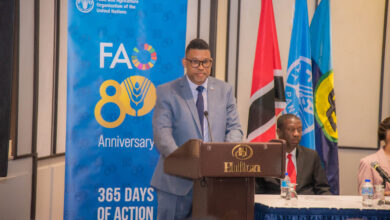It is an honor to address you today at this CARICOM 4th High-Level Advocacy Forum on Statistics. This forum represents an invaluable opportunity to reflect upon and advance our shared commitment to robust, inclusive, and transparent data systems that propel sustainable development across the Caribbean region.
In today’s interconnected world, statistics serve as the bedrock of decision-making processes, policy formation, and the measurement of progress toward our regional and global goals, including the Sustainable Development Goals (SDGs). Data, when harnessed effectively, is a powerful tool that enables us to address the unique challenges facing the Caribbean—challenges that range from economic and social inequality to climate resilience, health equity, and youth empowerment.
As we gather here, we are reminded of the pivotal role that accurate, timely, and disaggregated data plays in transforming lives. Statistics illuminate the path forward and provide essential insights into the needs and conditions of our populations. They empower us to assess, act, and allocate resources effectively to those who need them most.
For UNFPA, reliable data is at the core of our mandate to ensure sexual and reproductive health, gender equality, and the rights of women and young people. Through the use of data, we can better support each nation in developing inclusive policies, in view of major demographic changes, that enhance the health, well-being, and potential of all its citizens. We also seek to strengthen our joint work with the UN system and IFIs to support National statistical systems and regional organizations through better coordination around data. Our work in partnership with CARICOM, international and regional donor partners, and national statistical offices aims to strengthen data capacities that foster sustainable development—empowering governments to make evidence-based decisions that align with the unique needs of each community.
To guarantee that capacities for data collection, analysis, and reporting are increased and that policies and program action are evidence-based and evidence-driven, we must simultaneously strengthen our data management systems while we work to expedite progress. We must fully utilize the benefits that technology offers and foster an environment that encourages creativity, particularly among young people, so they can develop and implement innovation in support of this strategic and common goal.
As we embark on today’s discussions, let us remember that statistics are more than numbers; they are a powerful narrative about our shared journey toward equity, opportunity, and resilience. Let us continue to advocate for data systems that are inclusive, innovative, and capable of evolving with the needs of our Region.
Together, we can build a future where statistics not only inform but inspire actions that benefit all. Thank you for the opportunity to support this critical dialogue. UNFPA looks forward to advancing our collaboration with CARICOM and each of you as we continue to harness data to drive progress and empower communities across the Caribbean.
Thank you.






